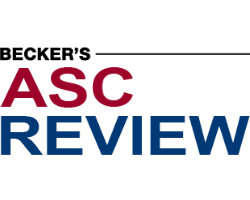
Editor's Note NorthStar Anesthesia is expanding its reach across Georgia’s ambulatory surgery centers (ASCs), reinforcing its strategy of pairing local clinical autonomy with scalable anesthesia services, an October 1 PR Newswire press release reports. NorthStar reportedly supports more than 60 ASCs statewide through a model focused on transparency, long-term relationships,…

Editor's Note UnitedHealthcare’s 15% cut to certified registered nurse anesthetist (CRNA) reimbursements has ignited strong opposition from anesthesia leaders who warn the policy could endanger patient access to safe, affordable care in rural and underserved areas, Nurse.org October 14 reports. On October 1, UnitedHealthcare implemented the new policy, reducing payments…

Editor's Note Hospitals are bracing for service reductions as anesthesia staffing shortages collide with reimbursement cuts, Modern Healthcare October 14 reports. Executives and staffing experts see mounting financial strain that could limit patient access and stall growth plans, with rural facilities most exposed. As detailed in the article, systems continue…

Editor's Note Wisconsin nurses—including Certified Registered Nurse Anesthetists (CRNAs)—gain more autonomy under legislation signed August 8 by Governor Tony Evers, according to an August 8 report in the Milwaukee Journal Sentinel. Under the new legislation, nurse practitioners, clinical nurse specialists, CNRAs and certified nurse-midwives who meet certain qualifications may obtain…

Editor’s Note: This page is a companion piece to the main article, How ASCs ace the AAAHC accreditation survey. The posts below cover the latest version of the handbook from the Accreditation Association for Ambulatory Health Care (AAAHC) and advice on delineation of privileges. Navigating the new handbook The latest…

Editor's Note Ambulatory surgery centers (ASCs) continue to face a mounting anesthesia crisis: costs are rising, staffing is tightening, and reimbursement is failing to keep pace. Anesthesia payments have dropped 8.2% over the past decade, while provider salaries have risen by as much as 40%, creating a growing financial burden…

Editor's Note States that grant full practice authority to advanced practice registered nurses (APRNs) rank significantly higher in health system performance than those that impose physician supervision requirements, according to a July 3 report from the University of Missouri. The article focuses on a study led by researchers at the…

Editor's Note All newly certified registered nurse anesthetists (CRNAs) in the US will be required to hold a doctoral degree, marking a significant shift in training standards for the profession, according to a May 3 post by James Allen, MD, on his page, “Hospital Medical Director,” also covered by Becker's…

Editor's Note Terry A. Bohlke, MSHA, CPA, CMA, CASC, emphasized that Rocky Mountain High Surgery Center is a pseudonym “to protect the innocent,” but the numbers he presented at the 2025 Ambulatory Surgery Center Association (ASCA) Conference & Expo in Denver last week were real enough. Based on actual scenarios…

Editor's Note Ambulatory surgery center (ASC) leaders elevate safety by treating patient selection as a clinical gatekeeper, then prop that rigor with data-driven workflows, advanced monitoring, and targeted robotics to bring complex spine cases safely into the outpatient space. An interview with Glenn Snyders Jr, MD, medical director and head…